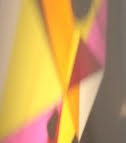
of course, the obvious first impression to the scrawled 'note to self' in this book, is to laugh a little at the dead end this poor sap seemingly ran up against while reading some seriously stunning stories by joao guimaraes rosa; but maybe ino really loved them.
ino confirms for me that it would be impossible to read these stories and not find poetry in them (as it is with borges, calvino, robert walser, pessoa, etc.). i think there is an attempt to suggest that poetry and fiction claim different territories; but to define one of those territories in a simple phrase creates misunderstandings (or perhaps ino wasn't a great writer). ino seems to suggest that poetry is disconnected from fiction because it doesn't always make sense; but can making sense be exclusive to fiction, or not making sense exclusive to poetry?
found texts are often like a private message scrawled on a note and stuffed inside of a drifting glass bottle. their meanings are determined by their connection to the objects they are written on or hidden inside of. ino's text could not have been inscribed on a more perfect object; for guimaraes rosa's third bank story clearly reveals that there are new potentials to be found in the pre-defined; and that one can see a new presence in something already completely familiar.
if you ask someone looking at a river, which bank they like better, they would more than likely choose the left or the right assuming there are only two choices. guimaraes rosa chooses a third bank - creating a third space where others see only two. this previously ignored pre-existing space becomes a new space simply because it has been activated with a new potential of seeing or experincing it differently (similar to the landscape of treetops in calvino's baron in the trees, or the subscape of george nelson's furniture). this new space is born out of the connected space of two pre-existing others; perhaps like the space between fiction and poetry that guimaraes rosa's writing lives (for to place it exclusively in either would not do it justice).
certainly, great poetry and great fiction can contain an incredible depth of experience for a reader left with questions, unfinished business, and a picture that still needs some of the dots connected. this can reveal the experience of reading as a potential... as something that can keep growing inside of you long after the period of reading (and long after the limited time it takes for the questions in a text to be answered within the same text).
i go back to ino's short text thinking that 'too much like poetry...' was written because his, or her, heart was overwhelmed with guimaraes rosa's words; and that he, or she, simply couldn't get them out of his, or her, head. i am hoping, perhaps, that ino really loved this book tremendously and specifically because it absolutely is 'too much like poetry (and); doesn't always make sense'.
Labels: books, fiction, poetry, potential

